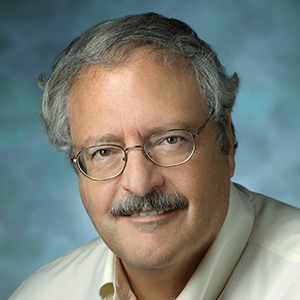Want real peer review? Publish in society journals
Peer Review Week (Sept. 16–20) is organized by a committee of 40 people from 29 scientific and publishing organizations worldwide. This year’s theme is “Quality in Peer Review.” The American Society for Biochemistry and Molecular Biology supports these efforts to highlight the importance of peer review by encouraging all ASBMB journal editors, associate editors and editorial board members to participate in events and activities that highlight the critical role peer review plays in the advancement of science.
Merriam–Webster defines peer review as “a process by which a scholarly work (such as a paper or a research proposal) is checked by a group of experts in the same field to make sure it meets the necessary standards before it is published or accepted.” Careful review of manuscripts by qualified experts in the same area of science is essential to ensure that the published literature is kept to high standards of accuracy, rigor and reproducibility. Without rigorous peer-review processes, the scientific literature rapidly would be filled with “fake news.” The ultimate purpose of peer review is to maintain the integrity of science by preventing the publication of invalid or poor-quality articles, including those that do not present novel findings.
Careful peer review by experts in your specific area of research is one of many reasons why we all should be reviewing for and publishing in nonprofit society-supported journals, such as those published by the ASBMB. Society journals do not have gatekeepers who are not practicing scientists; manuscripts are assigned to board members and reviewed by active scientists with research laboratories in the same areas as the submissions.
Society journals decide whether to publish a paper based on the quality of the science and its contribution to advancing a field. They do not base decisions to publish on whether a manuscript is newsworthy, a euphemism for “How will it affect our impact factor?”
In addition, any funds generated by a society journal go back directly to supporting science, as travel awards for young people to attend national meetings, education programs and advocacy for government funding of science. For-profit journals make money for their stockholders and do little to support the science community.
As we celebrate and extol the importance of peer review this month, remember this: If you want your articles to be reviewed by your peers, you should submit your papers to nonprofit society-supported journals.
Enjoy reading ASBMB Today?
Become a member to receive the print edition four times a year and the digital edition monthly.
Learn moreGet the latest from ASBMB Today
Enter your email address, and we’ll send you a weekly email with recent articles, interviews and more.
Latest in Opinions
Opinions highlights or most popular articles

Sketching, scribbling and scicomm
Graduate student Ari Paiz describes how her love of science and art blend to make her an effective science communicator.

Embrace your neurodivergence and flourish in college
This guide offers practical advice on setting yourself up for success — learn how to leverage campus resources, work with professors and embrace your strengths.

Survival tools for a neurodivergent brain in academia
Working in academia is hard, and being neurodivergent makes it harder. Here are a few tools that may help, from a Ph.D. student with ADHD.

Hidden strengths of an autistic scientist
Navigating the world of scientific research as an autistic scientist comes with unique challenges —microaggressions, communication hurdles and the constant pressure to conform to social norms, postbaccalaureate student Taylor Stolberg writes.

Black excellence in biotech: Shaping the future of an industry
This Black History Month, we highlight the impact of DEI initiatives, trailblazing scientists and industry leaders working to create a more inclusive and scientific community. Discover how you can be part of the movement.

Attend ASBMB’s career and education fair
Attending the ASBMB career and education fair is a great way to explore new opportunities, make valuable connections and gain insights into potential career paths.

